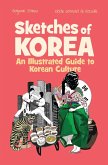In "Sketches of Central Asia" (1868), vÅrmin Vv°mbv©ry provides a vivid and engaging account of his travels through the culturally rich yet largely uncharted regions of Central Asia. Blending travelogue with ethnographic detail, Vv°mbv©ry employs a literary style that is both descriptive and reflective, inviting readers into the landscapes, customs, and social fabrics of the diverse populations he encounters. The work not only serves as a fascinating chronicle of his journey but also reflects the broader Victorian fascination with exploration and imperialism, situating Vv°mbv©ry's observations within the context of contemporary Western interests in the East. vÅrmin Vv°mbv©ry, a Hungarian Orientalist and linguist, was deeply influenced by his own experiences and academic pursuits. His unique perspective stems from both his personal heritage and his commitment to understanding the cultures of Central Asia. Having lived among the people of these regions, Vv°mbv©ry'Äôs insights are informed by an authentic, lived experience, which underscores the importance of his narrative in bridging Eastern and Western perspectives during a period of imperial expansion. "Sketches of Central Asia" is highly recommended for readers interested in the complexities of cross-cultural encounters, as well as those captivated by the allure of travel literature. Vv°mbv©ry's engaging prose and keen observations make this a quintessential work for anyone seeking a deeper understanding of Central Asian peoples and the historical context of the 19th century.
Dieser Download kann aus rechtlichen Gründen nur mit Rechnungsadresse in A, B, BG, CY, CZ, D, DK, EW, E, FIN, F, GR, H, IRL, I, LT, L, LR, M, NL, PL, P, R, S, SLO, SK ausgeliefert werden.









